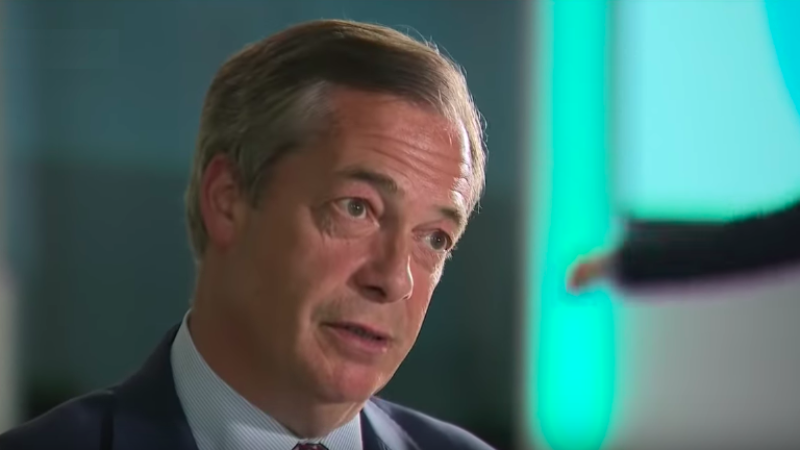
An exciting recent development has seen people throw milkshakes at right-wing politicians – with Nigel Farage one of the high-profile victims. Predictably, this sparked a somewhat tiresome public debate about the rights and wrongs of this dangerous new uptick in dairy-based political violence, with much of the left proudly justifying it on the basis of anti-fascism.
But is Nigel Farage a fascist? Certainly I believe it’s fair to describe him as a racist and a reactionary, and one with something of a populist streak – but this hardly distinguishes him from the likes of Boris Johnson or a whole host of other mainstream politicians. And like many Conservatives, his underlying political outlook seems to be one rooted in classical liberalism and in Thatcherism, with what seems like a genuine commitment to parliamentary democracy, a small state, and some version of the rights of the individual. Meanwhile his political strategy has looked fairly conventional – contest elections, hold public meetings, raise his profile through the mainstream media.
None of this looks particularly similar to the classical fascism of the 1930s, and none of it seems to mark him out clearly from the more mainstream centre-right politicians (or arguably even some of those on the ‘centre-left’).
What exactly do we mean when we call somebody a ‘fascist’? People throw the word around constantly but we’re rarely particularly clear about the definitions. It’s fairly obvious what we’re talking about when the subject is Benito Mussolini or his direct imitators and admirers, but beyond that things start to get pretty muddy. There have been plenty of academic attempts to define precisely some kind of essential, underlying ‘ur-fascism’, but none of these are particularly widely-agreed or map onto the way most of the left actually uses the word in practice.
Calling someone a fascist is often unhelpful as a descriptive or analytical claim. But it can be extremely powerful as an action. If you’re calling somebody a ‘fascist’, you’re presumably also calling for them to be treated like a fascist – and that’s the concrete effect of your words, whether conscious or not. It’s a declaration of war, and of the need to deploy certain strategies and tactics against them.
By calling someone a ‘fascist’, we’re really saying: “They are an urgent problem; they should be no-platformed; their meetings should be disrupted; it’s acceptable to breach accepted liberal norms when fighting them; we need to make certain alliances with mainstream forces in order to stop them; we need to prioritise destroying them politically.”
What’s the justification for this? For classical fascists, it’s that they were such a threat: they’ll attack us physically; they’ll shut down our meetings; they’ll smash the unions; they actively seek to destroy liberal democracy and our freedom to organise; they’ll institute a dictatorship; they’ll commit genocide. If we don’t destroy them, they will destroy us.
Is anything like the above true of Nigel Farage? Arguably some of it, maybe, if you squint a bit. Certainly he’s helping to accelerate particular trends around state racism, anticommunism, the breakdown of certain liberal norms, and is helping to enable populist mobilisations from the right. But is Farage the only one doing this? Is he a unique problem in this regard? Is he worse than the mainstream neoliberal centre?
The main implication of calling him a fascist is to suggest that he’s so uniquely dangerous that we need to ally with the centre against him. Does this make sense? Whether we look at the trade union laws, counter-terror laws, mass surveillance, press bias, red-baiting, migrant-bashing, eroding of liberal norms, loose talk of military coups, militarisation of the police, etc – this is all already happening and has been happening for years, and it’s being driven from the centre, not by Farage.
I don’t say any of this because I’m worried about people throwing milkshakes at Farage. But I’m concerned that we should think clearly about strategy. If we call Farage a ‘fascist’ out of cheap rhetoric or lazy analysis (“he’s far right and a racist – that’s basically the same thing as fascist”), it leads us towards certain political strategies and priorities that may or may not be appropriate. We’re unthinkingly shutting ourselves in a corner strategically and depriving ourselves of the ability to talk or think clearly about the situation that we’re in or about the strategic approach that it demands.




More from LabourList
‘Welfare reforms still mean a climate of fear. Changes are too little, too late’
Welfare bill: Which MPs are still voting against reforms?
‘The tap end is getting hotter – and Welsh Labour might get burned’